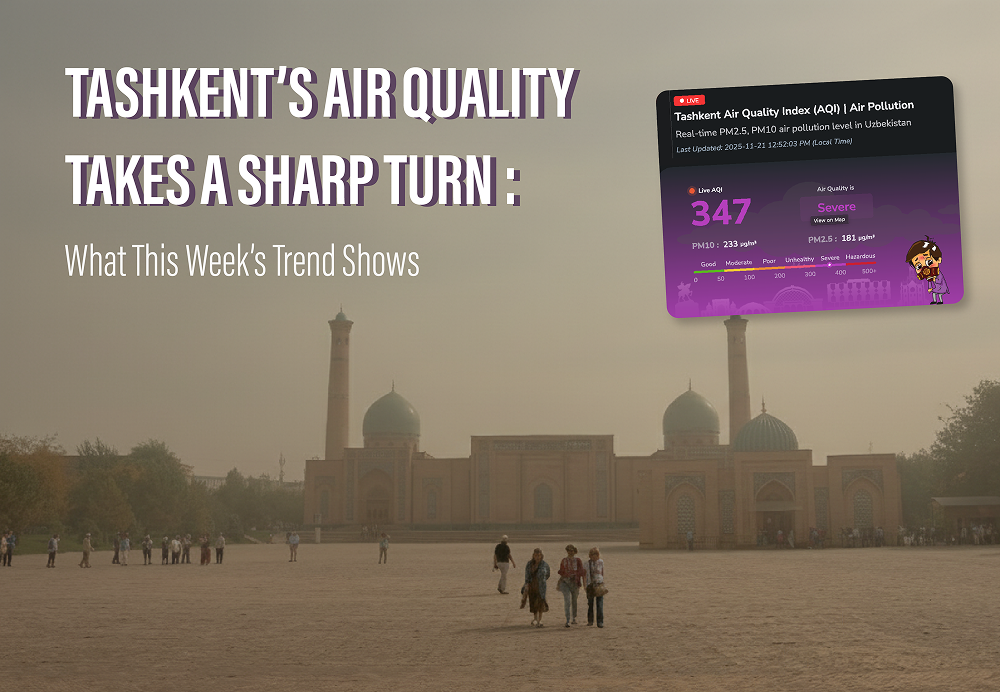Northern Territory Particulate Matter (PM2.5) Level
Australia

10µg/m³
Last Updated: 2025-11-28 07:59:08 PM (Local Time)

Northern Territory
What is the Current PM2.5 Level?
Northern Territory
The current PM2.5 level based on average air quality data in Northern Territory is 10 µg/m³, making it healthy and safe for everyone.
The current PM2.5 level in Northern Territory is 1.5x Below the recommended WHO guideline of 15 µg/m³.
AQI Graph
Historical Air Quality Data
Northern Territory

Download 2024 Annual Data
World Air Quality Report

Australia 2019 PM2.5 Death Toll
PM2.5 annual mean levels
6.7µg/m³
each person's annual mean exposure 1.2 times WHO's guideline.

7
Deaths per 100,000 people
attributable to fine particle pollution in 2019 (1,781 in total in the country).
Death percentage as per diseases
 Type 2 Diabetes
Type 2 Diabetes neonatal disorders
neonatal disorders tracheal, bronchus, and lung cancer
tracheal, bronchus, and lung cancer chronic obstructive pulmonary disease
chronic obstructive pulmonary disease ischemic heart disease
ischemic heart disease stroke
stroke lower respiratory infections
lower respiratory infections
PM2.5 particles, with a diameter of 2.5 micrometers or less, are approximately 30 times smaller than a human hair, making them a significant yet often unseen threat to air quality.

Uncovering the Sources of Particulate Matter (PM2.5): Where Does It Come From?

Windblown Dust
Daily activities like construction or other practices
Home-related emission
Household activities, such as cooking and heating
Factories and industries' emission
Regular operations in factories and industries
Power plants generation
Emission from Routine energy production in power plants
Landfill fires
Fires in landfills, often caused by waste mismanagement
Transportation emission
Diesel operated Daily vehicles produces exhaust
Human-caused emissions
Common practices like open burning of waste or agricultural residuesShort-Term PM2.5 Exposure Impacts

Irritation in Eyes
Redness, itching, and discomfort in your eyes
Headaches
Frequent or intense headaches.
Fatigue
Feeling unusually tired or weak.
Aggravated asthma
Increased asthma attacks and symptoms.
Breathing problems
Coughing, wheezing, and shortness of breath.Health Advice Based on Current PM2.5 Level In
Northern Territory
0Cigarettes per day
Breathe easy and get active! The air quality is perfect for enjoying outdoor activities.
Source:
Berkeley Earth
As per the current PM2.5, turn off the air purifier.
Get an Air PurifierRecommendations by 

PM2.5 Monitor
Monitor PM2.5 level around you with an advanced monitor.

PM2.5 Sensor
Measures PM2.5 around you to stay safe and aware.

Car Filter
Trap particles before they enter your vehicle, ensuring a safe and healthy ride.

N95 Mask
Protect yourself from harmful airborne particles by wearing an N95 mask.
Why you should care about Particulate Matter (PM2.5)?
Know More About PM2.5 Sensor
Air Quality FAQs
at Northern Territory
Frequently Asked Questions About Air Quality
What is the current PM2.5 level in Northern Territory?
The current real-time PM2.5 level in Northern Territory is 10 µg/m³ (Good). This was last updated 2025-11-28 07:59:08 PM (Local Time).
When was the best PM2.5 level in Northern Territory in the last 24 hours?
The best PM2.5 level was 2 µg/m³ (Good) at 8:04 PM, Nov 27, 2025 (Local Time) during the last 24 hours.
When was the worst PM2.5 level in Northern Territory in the last 24 hours?
The worst PM2.5 level was 13 µg/m³ (Good) at 10:04 AM (Local Time) during the last 24 hours.
What is the current trend of PM2.5 levels in Northern Territory during last 24 hours?
The PM2.5 levels in Northern Territory have been fluctuating throughout the last 24 hours. The levels have increased by highest 13 µg/m³ at 10:04 AM (Local Time), lowest 2 µg/m³ at 8:04 PM, Nov 27, 2025 (Local Time).
What actions are recommended as per the current PM2.5 level in Northern Territory?
The air quality is satisfactory, and air pollution poses little or no risk. No special precautions are needed; enjoy outdoor activities freely.
.png)


.png)




